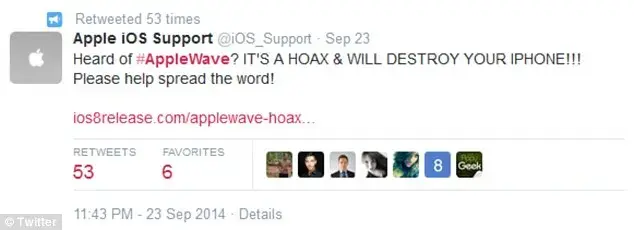“Everybody has a plan till they get punched within the mouth.” Although Mike Tyson meant that actually, his smart phrases actually maintain true in advertising.
And no marketer will get punched within the mouth fairly as typically as those that take care of user-generated content material.
Want convincing? Simply seek for movies about Celsius on TikTok. Whereas the drink model does tout substances that “burn calories,” many TikTokkers falsely declare the health beverage comprises every little thing from Ozempic to cyanide and provides you with luscious locks, sturdy nails, and an early grave.
So what’s a model to do when UGC goes off the rails? Does a wise marketer battle again or roll with the punches?
Under, I cowl some real-world examples of how manufacturers have encountered controversial UGC after which pluck out some takeaways to be taught from.
However first, let’s take a look at what’s at stake …
When UGC Assaults
Regardless of the previous adage that “all publicity is sweet publicity,” there are a couple of various kinds of user-generated content material that may probably injury your model — even when it sounds overwhelmingly optimistic.
Misinformation
This entails outright false claims about your services or products. Even when customers are attempting to advertise your model, these posts could be damaging.
Diving again into the Celsius case I famous above, the “fitness drink” grew to become a lightning rod for false data final 12 months when drinkers posted TikToks alleging it contained the weight-loss drug Ozempic.
At its peak, the time period “Celsius drink Ozempic” reached a whopping 11.7 million searches on TikTok.
The development received so out of hand {that a} spokesperson had to give a media tour to Fox and other outlets to state “Celsius merchandise don’t comprise, and have by no means contained, Semaglutide (the generic title for Ozempic and Wegovy).”
Regardless that the movies would possibly really feel optimistic, they might very effectively flip off health-conscious customers who believed the false claims that the drink snuck prescription treatment into its recipe.
Ought to the advertising group have stepped in earlier than it received that far? Or was it a message that wanted to come back from an official channel?
Deceptive Content material
And what about claims which are merely innocent stretches of reality as an alternative of outright lies?
Once more, we glance to Celsius. TikTok’s second favourite declare in regards to the drink is that it helps individuals quickly grow hair and nails. Although Celsius markets itself as a well being drink — and a few substances could also be linked to hair and nail progress on their very own — that is nonetheless only a rumor that’s unproven by testing. A rumor that Celsius hasn’t spoken out on. However, ought to they?
The claims aren’t hurting anybody, they’re onerous to falsify, and so they’re selling the model, proper?
Earlier than you consider this hard-to-prove rumor as a win, do not forget that 80% of consumers say that UGC impacts purchasing decisions. If prospects come to a model on false grounds, they might really feel misled by each UGC creators and a model when unchecked claims aren’t true.
Whereas a innocent declare is perhaps a grey space, it poses an moral and ethical dilemma that manufacturers ought to think about.
Detrimental UGC
Whereas most UGC is geared towards the optimistic, on this case, the false claims are actively working in opposition to your services or products.
In the previous few weeks, a well being influencer with over 2 million Instagram followers claimed that Celsius comprises toxic cyanide. And never simply any previous cyanide, however cyanide derived from human waste. (A declare that has been debunked by PhD nutritionist Layne Norton for those who don’t belief Celsius themselves.)
(Aspect observe: If you happen to’re on the Celsius social group and end up in Asheville, let me purchase you a sympathy beer.)
Whilst you could also be tempted to leap in and squash these claims instantly, something which may be thought of slander or libel is greatest dealt with by your authorized illustration.
Hoaxes
Lastly, within the case of a hoax, the creator tries to go off the UGC as formally sourced content material.
Manner again when iOS8 was launched (and dinosaurs roamed the Earth), pranksters shared an official-looking advertisement for a new feature called Apple Wave.
In accordance with the pretend advert, Wave gave your iPhone the power to cost your battery “utilizing any customary family microwave.”
(In case it must be stated: Please don’t microwave your telephone.)
This led to a double handful of social media posts displaying the charred stays of iPhones.
Although the joke’s precise influence is unclear, Apple took it significantly sufficient to make a number of statements throughout numerous platforms, like Twitter.

Navigating Consumer-Generated Chaos
Let’s rip this half off like a bandaid: There’s no one-size-fits-all answer for the way and when to reply to off-course UGC.
In the end, a response (or lack thereof) tremendously is dependent upon what’s at stake for a model and what’s being stated. (Is it simply your popularity on the road or a buyer’s life?)
I’m not your PR or authorized group and suggest that you simply seek the advice of trusted model consultants when and if the unthinkable occurs.
However, listed here are a couple of takeaways we have gathered from manufacturers who efficiently navigated these eventualities:
- Prep a crisis communication plan. Regardless of Mike Tyson’s proverb, it’s useful to have the skeleton of a plan able to go. Who will deal with the response? Who must be consulted? What channels will you employ?
With this in place, you could be prepared for a situation the place your model will get an inflow of buyer internet chatter, press requests, or customer support inquiries on account of UGC.
- Take a deep breath. Yeah, yeah. You’ve heard this earlier than, however don’t simply scroll to the subsequent tip. Responding in anger or concern dangers making the state of affairs ten occasions worse.
In a disaster, your first instincts will probably be emotional (which does not at all times result in one of the best response.) Whereas timeliness is necessary, responding successfully is vital.
Take a beat and seek the advice of your group or leaders in deciding one of the best subsequent step.
- Don’t go on the assault. Even for those who’re completely in the precise. Even when they’ve insulted your mom. Even when the person is a complete jerk.
Attacking the person personally will by no means look good in your model.
- Take into account IF a response is even wanted. If the UGC is coming from an apparent troll with 20 followers (largely bots), responding will solely convey consideration to their message.
Nonetheless, if a dangerous message goes viral, ignoring it gained’t make it go away. In that case, work intently along with your PR and authorized groups to craft a plan.
- Have a aim in thoughts. Are you aiming to remind audiences of your model values or are you simply making an attempt to right false claims to re-earn belief?
- Clarify the “Why” behind your response: Take into account statements starting with, “To reassure our prospects …” or “We wish you to really feel protected with our merchandise, so …”
Disclaimer: This weblog submit shouldn’t be authorized recommendation, nor an exhaustively confirmed public-relations information in your firm to make use of in occasions of selling controversy or disaster. As a substitute, it supplies background data that will help you higher perceive the cons of user-generated content material and the way manufacturers have been documented to reply to it up to now. Any authorized or moral commentary or comparable data shouldn’t be the identical as authorized or PR recommendation, the place an legal professional or public relations skilled applies the legislation or public relations techniques to your particular circumstances. We insist that you simply seek the advice of an legal professional and seasoned PR executives for those who’d like recommendation in your interpretation of this data or its accuracy.
In a nutshell, you might not depend on this as authorized recommendation, or as a advice of any explicit authorized understanding.
![How Smart Brands React to Controversy [Expert Interviews]](https://ygluk.com/wp-content/uploads/2024/07/when-ugc-goes-wrong.webp.webp)
![Download Now: The Ultimate Guide to User-Generated Content [Free Ebook]](https://no-cache.hubspot.com/cta/default/53/82ab0972-f6ed-48ed-b0bc-e5e8ea32dc34.png)
